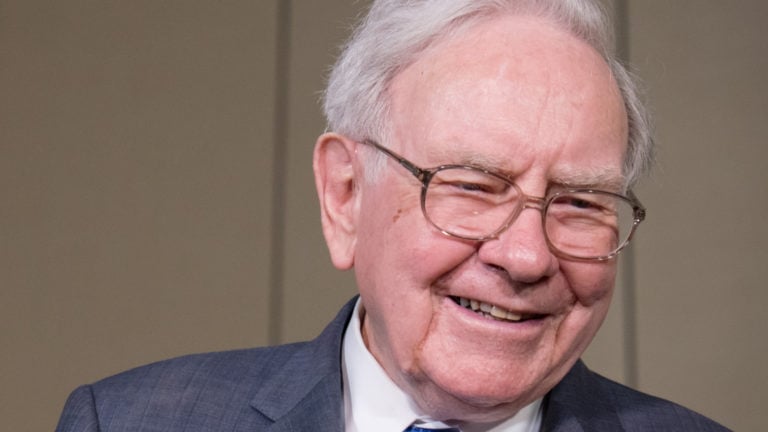Google the words “Berkshire Hathaway (NYSE:BRK.A,NYSE:BRK.B) spinoff,” and you get two results. Google the term “Berkshire Hathaway cash,” and you get 12,200 results.
The holding company reported its Q4 2023 results on Feb. 24. Its operating earnings increased by 28% to $8.48 billion, while its operating income for the year was up 21% to $37.35 billion.
Its insurance underwriting accounted for almost 15% of its profit, a massive improvement from 2022’s $30 million operating loss. The insurance business’s investment income was $9.57 billion in 2023, 48% higher than a year ago, offset by lower operating earnings from its railroad and energy businesses.
The most glaring part of the quarterly results is its cash position. It finished the year with nearly $168 billion, a company record. It was so big that the Motley Fool published an article about 10 companies Berkshire could buy with its cash.
It doesn’t happen, especially now that Charlie Munger is gone. I don’t think Buffett has the stomach for a transformative acquisition like BNSF did in February 2010. The company paid $34 billion for the railroad when its market cap was $178 billion. That’s about 20% of its market cap at the time.
If he used 20% of Berkshire’s market cap today, the company would have to shell out $176 billion, $8 million more than its entire cash hoard. It’s just not going to happen.
However, if he were to spin off half of the cash into a separate business that would go out and buy smaller enterprises similar to its $11.6 billion acquisition of Alleghany Corporation in 2022, that would instantly add value to its cash hoard, only they wouldn’t be insurance businesses.
Here are three reasons why a spinoff should happen.
A New Platform for Growth
Buffett admits in the 2023 shareholder letter that its size now works against it.
“There remain only a handful of companies in this country capable of truly moving the needle at Berkshire, and they have been endlessly picked over by us and by others. Some we can value; some we can’t. And, if we can, they have to be attractively priced. Outside the U.S., there are essentially no candidates that are meaningful options for capital deployment at Berkshire. All in all, we have no possibility of eye-popping performance,” Buffett wrote.
There is no question that the company’s existing operations will continue to drive considerable cash flow for the company. However, when the CEO admits no growth prospects are available to Berkshire, you’ve got a problem.
It used to be that Buffett was optimistic about finding a decent-sized business to buy, but now it sounds like he’s thrown in the towel. With Munger gone, he may be ready to move aside for Greg Abel.
A spinoff would give Abel a growth lever to pull. Otherwise, investors will continue complaining about its cash hoard doing little but gathering interest (a lot, mind you) and dust.
Better Deals May Come Its Way
If a spinoff were to happen and the new CEO and management team laid out the parameters under which it would acquire new businesses, Berkshire would once again start to receive phone calls from interested sellers that it’s not been getting in recent years because these businesses were too small to fit Berkshire’s acquisition parameters.
Buffett’s not wrong to say the competition’s intensified for acquisitions. Between alternative asset managers, sovereign wealth funds, pension plans, and even traditional asset managers like Fidelity being in the M&A game, it can no longer assume it will be the best buyer for the seller.
Frankly, I’m curious why Buffett feels there are no opportunities for Berkshire outside the U.S., yet he’s invested $23.36 billion in five Japanese trading houses, accounting for 6.3% of its $369 billion equity portfolio.
A spinoff investment firm would open up plenty of opportunities it currently can’t or won’t touch domestically and outside the U.S.
Lower Interest Rates Will Reduce Cash’s Attractiveness
In 2023, Berkshire’s after-tax earnings from its insurance investment income increased from $3.1 billion to $9.57 billion, as mentioned in the introduction.
Its pre-tax net investment income was $11.58 billion, with interest from Treasury bills, etc., accounting for 53%. It was just $589 million two years earlier due to lower interest rates.
Those are coming back. Not as quickly as businesses and consumers would like, but they could be considerably lower by the end of 2024 or mid-2025. Cash will be less attractive than it is today.
Spinning off $80 billion of the cash hoard would take time to deploy that much capital, so it’s not as if Berkshire shareholders would miss out on higher interest income from the current higher interest rate environment. Berkshire would merely move it to Baby Berkshire.
Also, by spinning off this cash into a separate, publicly traded company, it could use its shares and cash to finance these acquisitions. Once interest rates come down, it would switch some of the capital structure to debt from equity until it has acquired 8-10 businesses generating significant cash flow.
The best part about this move is that it does nothing to alter Berkshire’s business model. That’s 100% intact.
On the date of publication, Will Ashworth did not have (either directly or indirectly) any positions in the securities mentioned in this article. The opinions expressed in this article are those of the writer, subject to the InvestorPlace.com Publishing Guidelines.

